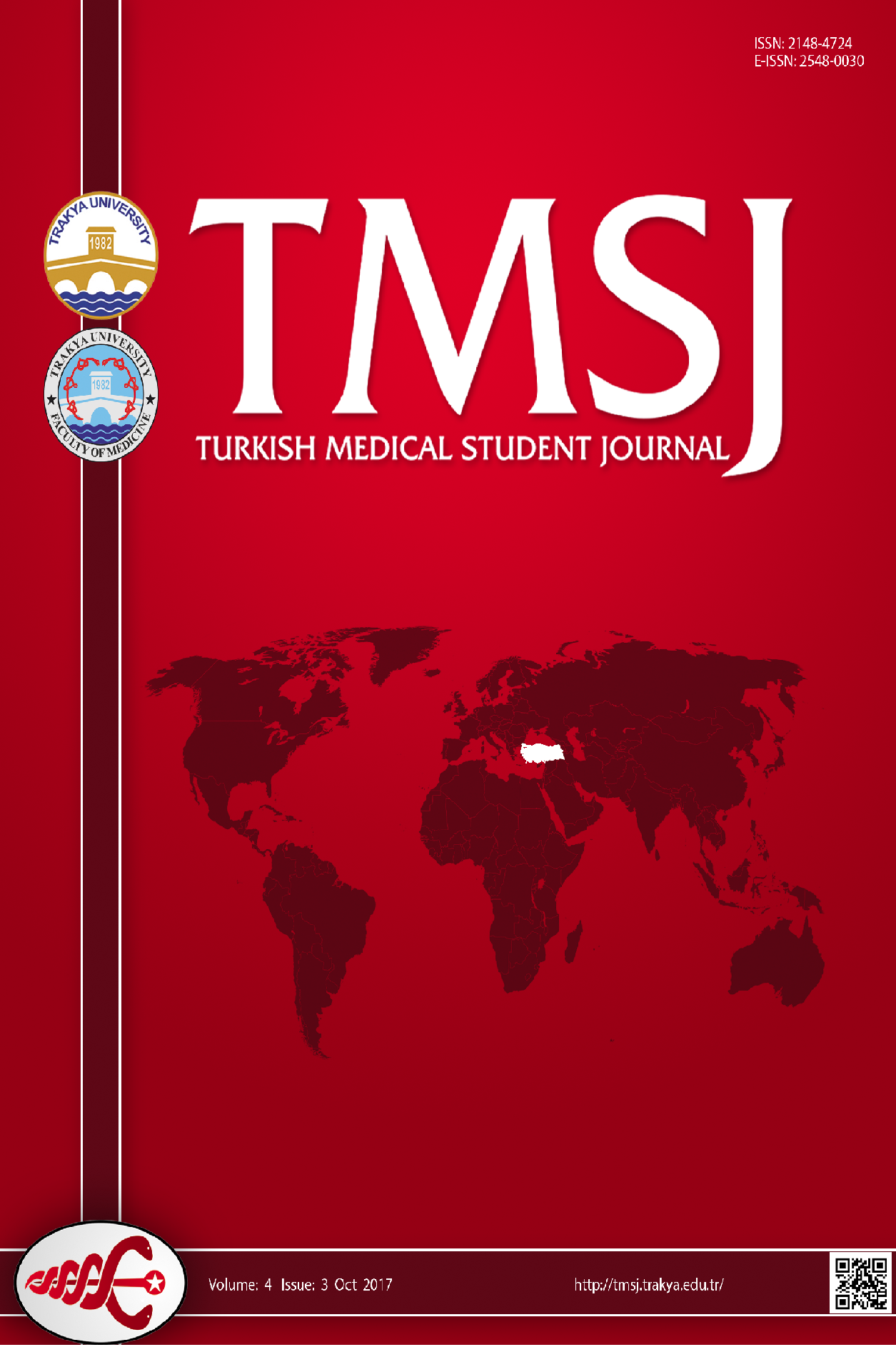
Turkish Medical Student Journal
Yazarlar: Begüm SÖYLEYİCİ, Pelinsu Elif HÜNKAR, Çağrı GİRİT, Cansu KURT, Fatih Mehmet UÇAR
Konular:-
Anahtar Kelimeler:Hypertrophic,Cardiomyopathy,Defibrillator,Electrocardiography
Özet: Aims: Although implantable cardioverter defibrillator reduces mortality in hypertrophic cardiomyopathy patients, inappropriate implantable cardioverter defibrillator shocks are related to increased mortality. The aim of this study is to investigate whether a new electrocardiographic marker of T wave amplitude in lead aVR can be used to predict appropriate therapy of implantable cardioverter defibrillator (shock or anti-tachycardia pacing) in hypertrophic cardiomyopathy patients. Methods: Thirty-six hypertrophic cardiomyopathy patients, who were admitted to the outpatient clinic for pacemaker control, with implantable cardioverter defibrillator were retrospectively examined (mean age: 51 ± 10.2 years, 72.2% male). The primary endpoint was appropriate implantable cardioverter defibrillator therapy. All hematological, biochemical and electrocardiogram parameters were measured before implantable cardioverter defibrillator was implanted. Results: Over a median follow-up period of 33 months, 9 (25%) patients experienced appropriate implantable cardioverter defibrillator therapy. Heart rate and QRS interval were similar between groups. QT and QTc values were higher in patients that received appropriate shocks. Patients who have T wave inversion were higher in therapy positive group. T wave amplitude in lead aVR values were significantly associated with appropriate therapy. Conclusion: Using simple ECG parameters, we may predict arrhythmic episodes before ICD implantation and an improvement of the medical antiarrhythmic therapy might be protective for HCM patients with ICD.